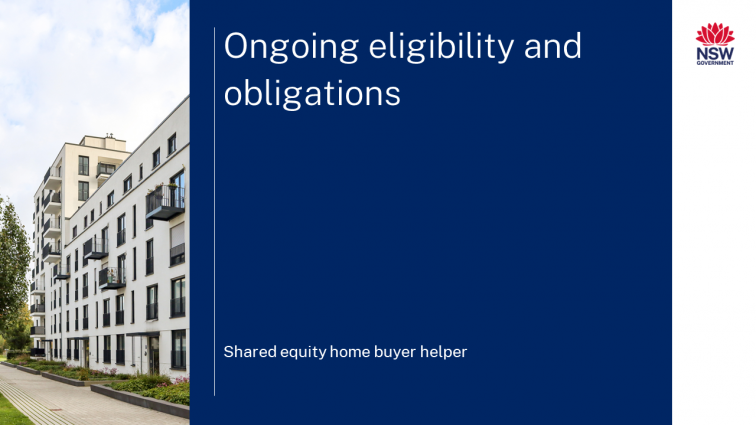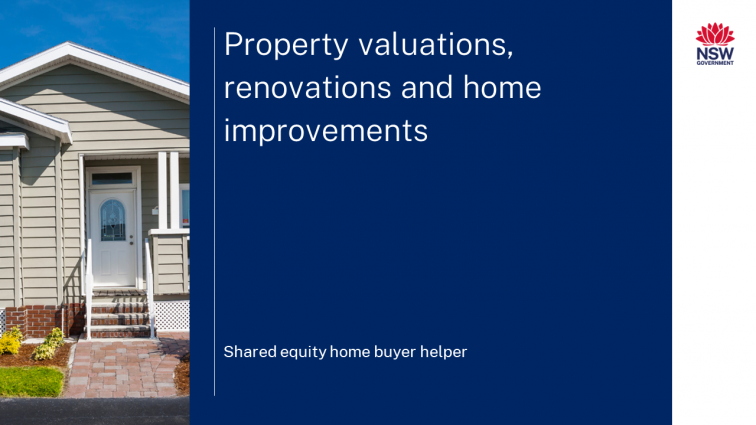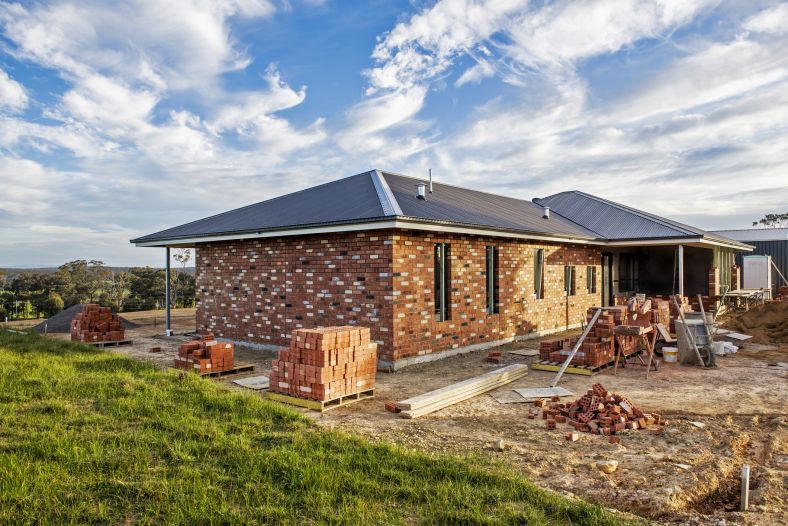Becoming ineligible
If your income or personal circumstances change, Revenue NSW will assess your situation and consult with you on the most suitable outcome.
All outcomes are on a case-by-case basis. You may be able to refinance or buy out some or all of the Government’s equity share in the property.
You won’t be forced to sell your property based on a change in circumstances. A forced sale would only occur as a result of a serious breach of the Policy Guidelines.

Shared Equity Home Buyer Helper – ongoing eligibility and obligations

Shared Equity Home Buyer Helper – property valuations, renovations and home improvements
Exiting Shared Equity
Participants are encouraged to voluntarily pay out the government’s equity interest in their home and exit Shared Equity if they are able to, however this is not mandatory.
Other ways to exit include refinancing or selling the property. If your situation changes altogether, you may also be required to exit following a periodic review, but only if an assessment of your new circumstances finds you can afford to do so, or are in a position to refinance your mortgage with a participating lender.
You may buy back some or all of the government’s equity interest at any time. However, any such voluntary payment must reduce the Government’s equity interest by at least 5 percentage points – except when the remaining equity interest is less than five percentage points, and the participant is making the final payment to exit Shared Equity.
Work with your lender if you are in a position to re-finance and acquire, in full or in part, the government’s equity interest. Though you can refinance from a lender that is not associated with Shared Equity, you should note:
- Refinancing with an approved Shared Equity lending partner means you can buy out the Government’s equity interest in full or in part, subject to the minimum 5 percentage point reduction.
- Refinancing with a different lender, means you must buy out the Government’s equity in full.
Further details are available in the customer information guide.




